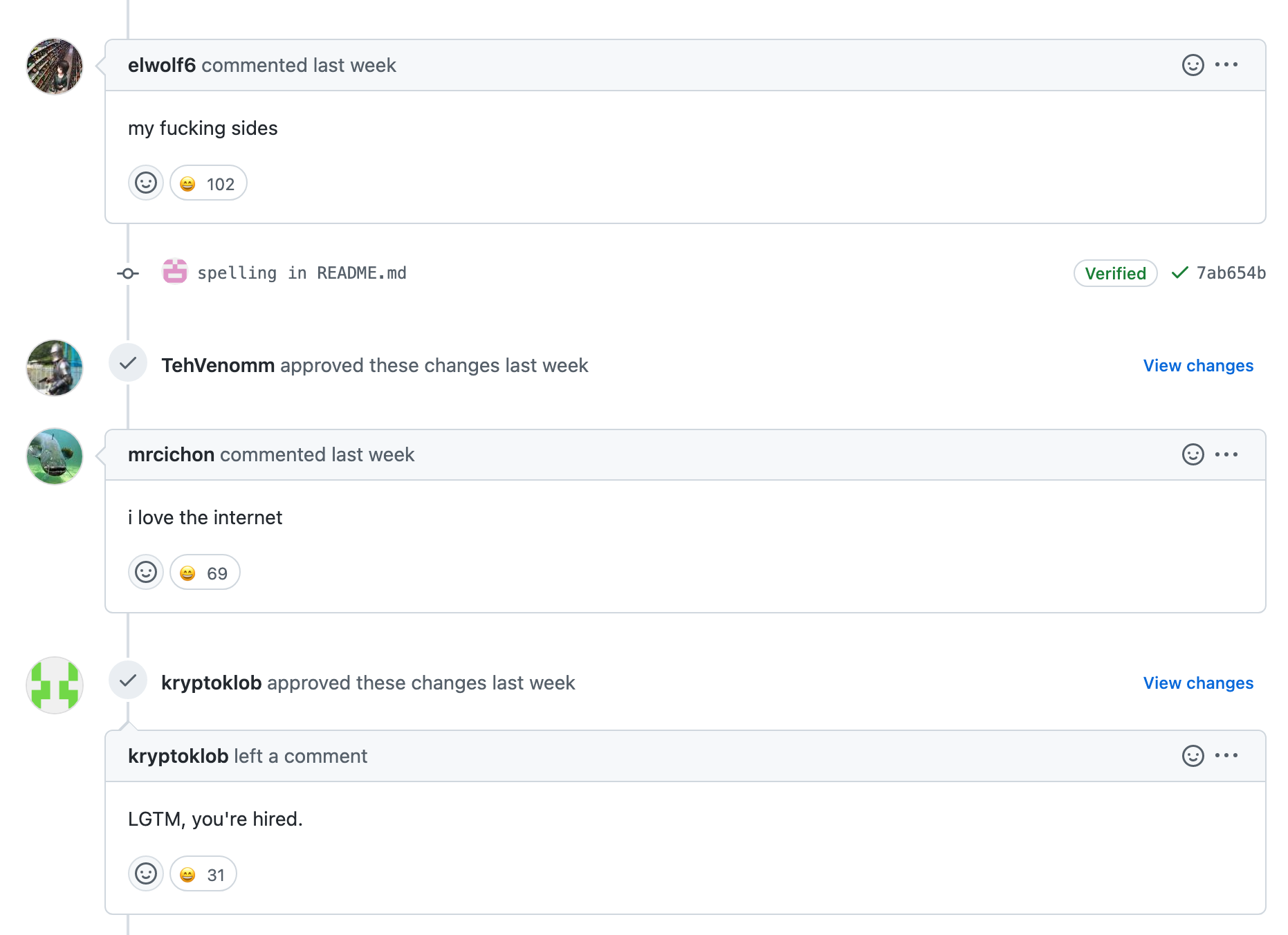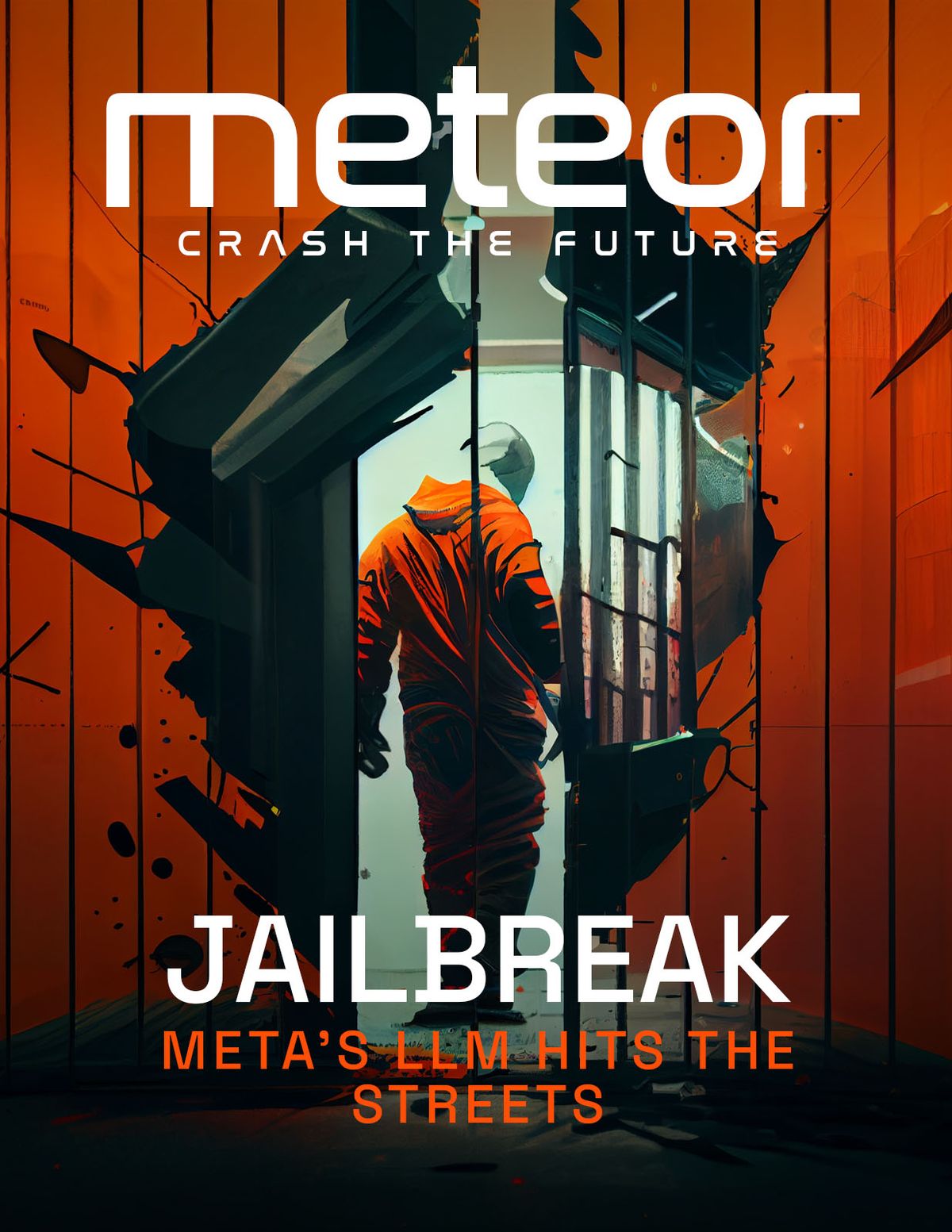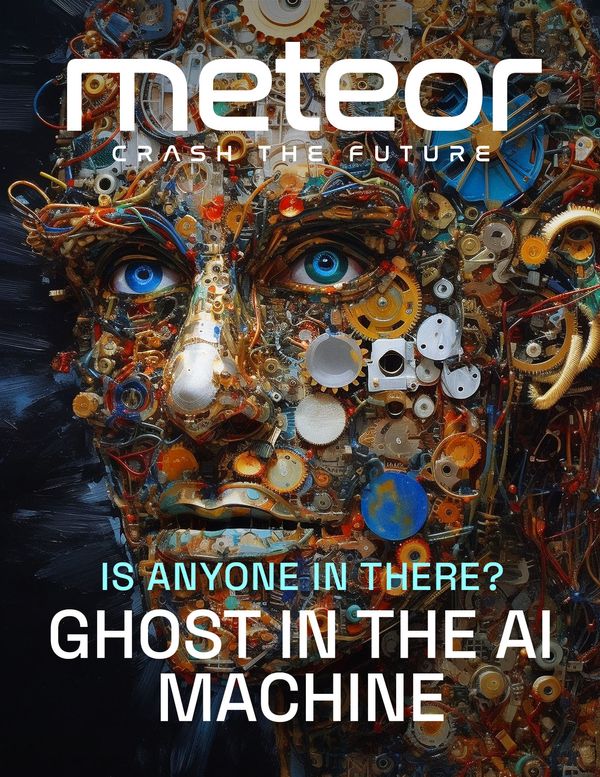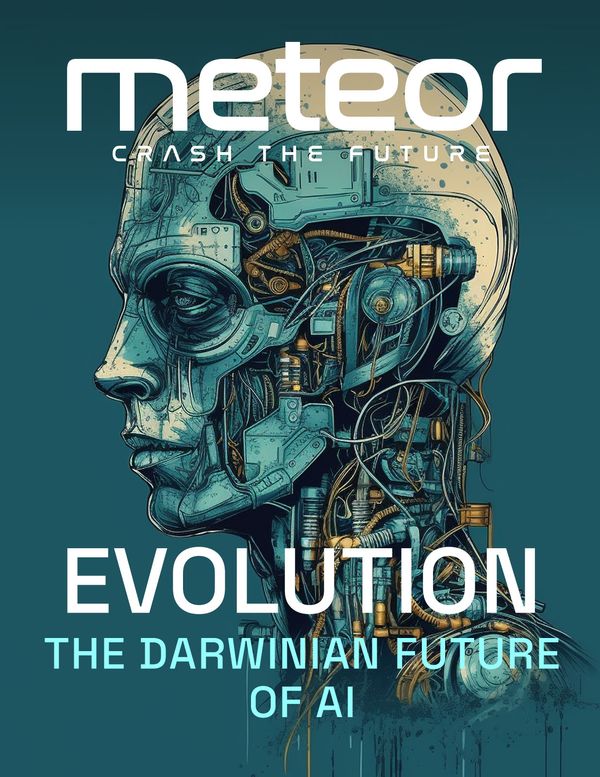Here's what happening in the future of creativity today.
- Everyone Is Tinkering With Meta's Leaked Large Language Model and It's Awesome
- Instagram Dumps NFTs
- ChatGPT Gives Siri the Boot
Everyone Is Tinkering With Meta's Leaked Large Language Model and It's Awesome
Last month, a simplified version of language-mimicking technology similar to the kind that powers OpenAI's popular ChatGPT bot leapt from a lab into the wild. Much like a rogue virus, it is now spreading everywhere unchecked.
It's taken just weeks for the code, known as a large language model (LLM), to make its way from Meta's walled garden to a global and unregulated army of AI tinkerers.
Activity noticeably picked up this weekend with the release of new tools making it easier than ever to install on a variety of low cost devices, such as off-the-shelf laptops, where savvy end users can test the model's limitations and powers, and try to push them further.
Welcome to the exciting and frightening world of open source AI.

It's yet another breakout moment for an already massively disruptive technology, bringing both positive potential by democratizing some of the most important AI capabilities developed to date, and also new risks.
LLMs typically require very large computing resources to work, and reside behind deep technology moats so the companies that develop them can exert some control over who gets access and how they're used.
OpenAI’s GPT-3 model, for example, was developed on a dedicated supercomputer that Microsoft built specifically for it that’s ranked in the top 10 most powerful processing machines in the world. (ChatGPT uses a spin-off of this model, GPT-3.5.)
Access is limited via its API and terms of service. Even if you somehow got ahold of the code, people couldn’t just download it and start tinkering with it themselves on a MacBook.
So what changed?
Three things.
First, Meta's leaked language model, called LLaMA, by design requires far less computing resources to run than a typical LLM.
Working from models trained on a trillion or more "tokens," or pieces of words, Meta researchers retrained LLaMA to run off of data sets with between 7B to 65B parameters (OpenAI uses 175B). This requires an order of magnitude less processing power than the original models trained to produce them. That's a big deal, because it means more people can play around with it compared to most other LLMs (there are dozens).
As Meta wrote in its announcement: "Smaller, more performant models such as LLaMA enable others in the research community who don’t have access to large amounts of infrastructure to study these models, further democratizing access in this important, fast-changing field."
Second, its AI team made the file available as a download. While Meta planned to keep the code closely controlled, offering it by application only to academics and researchers under a strict non-commercial license, almost immediately an unofficial BitTorrent download link popped up, meaning anyone could easily get copies.
Meta has defended its decision to keep the LLaMA release relatively unrestricted as part of its “commitment to open science,” and said it hoped it would help researchers identify and mitigate the problems of LLMs.

Third, a developer named Georgi Gerganov last week ported LLaMA from its native machine learning environment to a more widely known and relatively more user-friendly version, written in the C++ programming language, called llama.cpp. (We know about Gerganov ourselves from his earlier C++ port of OpenAI’s Whisper automatic speech recognition model, whisper.cpp, which we've used in the past to transcribe Meteor Twitter Spaces interviews.)
Developer Simon Willison saw the port early and has a detailed tutorial on how to install it (for advanced users only, who are in possession of a Mac running an Apple M2 processor). "This morning I ran a GPT-3 class language model on my own personal laptop for the first time!" he enthused.
In a blog post, Willison predicted the LLaMA jailbreak will inflame curiosity about and experimentation with the technology behind the chatbots, available now to many for the first time, just as Stability AI's Stable Diffusion generative imaging tool lit up interest in AI art when it came out last fall.
Over the weekend, a bunch of people jumped on llama.cpp and demonstrated it can run (slowly) on even the most minimal hardware setups, including a Raspberry Pi (super cheap computer hardware hackers love to mess around with) and a Pixel 6 phone.
An even simpler client, called Dalai (Dalai Llama, natch) was released on Monday that claims to automate the installation process – from the command line, but still.
Twitter is buzzing with use cases:
Meta’s LLaMA model ported to Apple Silicon.
— Amir Salihefendić (@amix3k) March 11, 2023
Implication: it’s not unimaginable that you can run huge LLMs locally. It could be used for all kinds of things, e.g., listening in meetings and creating world-class notes at almost no cost.https://t.co/hAYT2pi9qb
With llama.cpp and whisper.cpp it should now be possible to build real time speech to text with a chatgpt like agent on iPhone 13+, all on device 🤯https://t.co/JgT2BgDEgYhttps://t.co/J9bajmG2yS
— Siavash Ghorbani (@siavashg) March 12, 2023
Others are also working on getting LLMs to work effectively on cheap gear. Former OpenAI researcher Andrei Karpathy has developed a miniaturization project around an earlier OpenAI model, GPT-2, called nanoGPT, which has attracted a community of hackers to push the envelope on what can be achieved with as little as $800 in gear or less, among other things.
In short, the hardware moat that has largely prevented widespread hacking on LLMs is collapsing.
So what does this mean?
First and foremost, it means the long term development of LLMs likely won't be controlled by a handful of deep pocket corporations and research institutions.
Although it's not possible to use LLaMA legally for commercial purposes at the moment, the explosion of testing and research it is enabling is going to bring down considerably the time to market for consumer LLMs that run locally, rather than on a third party server. Here they can be tweaked directly by end users to generate novel results, in the same way AI artists can customize Stable Diffusion to produce results tuned for specific effects, like a particular artist's style.
This is a net good, given the alternative of largely locked AI tech, even though it will come with complications.
Second, since this stuff is now out in the wild, any pretenses of controlling it, or putting in guardrails are out the window. This will bring both a wave of useful and responsible applications that massively augment people in positive ways, and other stuff that's harmful, as well as attempts at mitigations.
OpenAI has faced trouble before from people who got around its rules, but it can revoke API access to any bad actors it discovers. That's not possible for Meta in regard to people running hacked versions of LLaMA locally on their own laptop. Here they are free to generate poetry and spam, productivity tools that free us from mundane tasks and text-to-voice scripts that aim to fool people into handing over banking or other sensitive information.
Things are about to get even crazier.
Quick Hits

Starbucks launches NFTs
And just like their coffee, they're hot.
Instagram dumps NFTs
That was quick.
Sesame Street to launch NFTs
Who's going to explain that to the kids?
Cool Tools
You can replace Siri with ChatGPT on your iPhone
Step by step instructions.
WordPress.com sites now have an easier way to integrate with the Fediverse
More hooks for Mastodon and Pixelfed.
There’s another band of ex-OpenAI employees on the loose
First there was Anthropic team and Claude. Now there's Together with OpenChatKit, another alternative to ChatGPT.
Grammarly has a lot more to say
GrammarlyGO is a planned text prompt bot like ChatGPT, but it promises to mimic your personal writing style, using data from Grammarly's typo correction service.
Turn text into memes with AI Meme Generator








